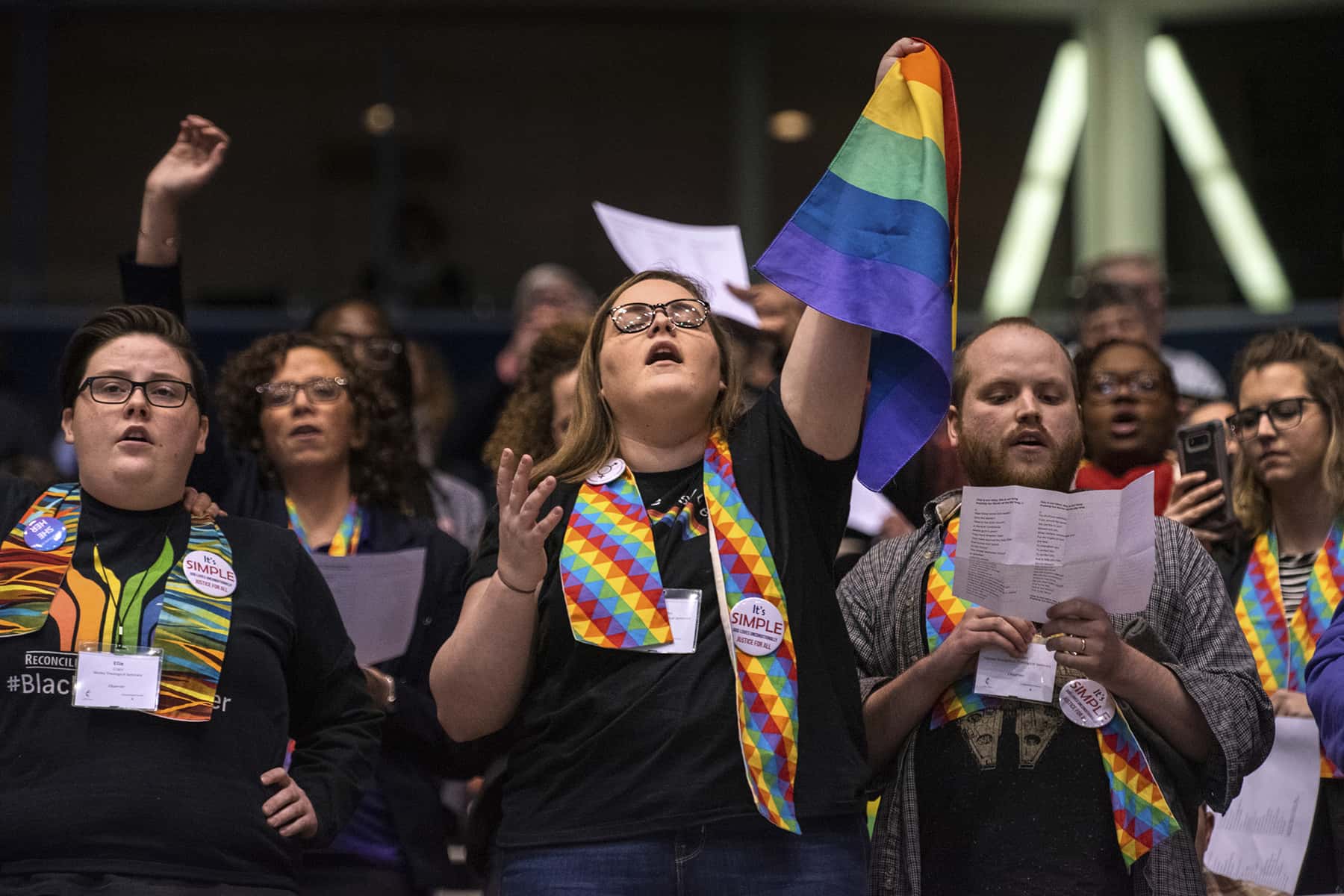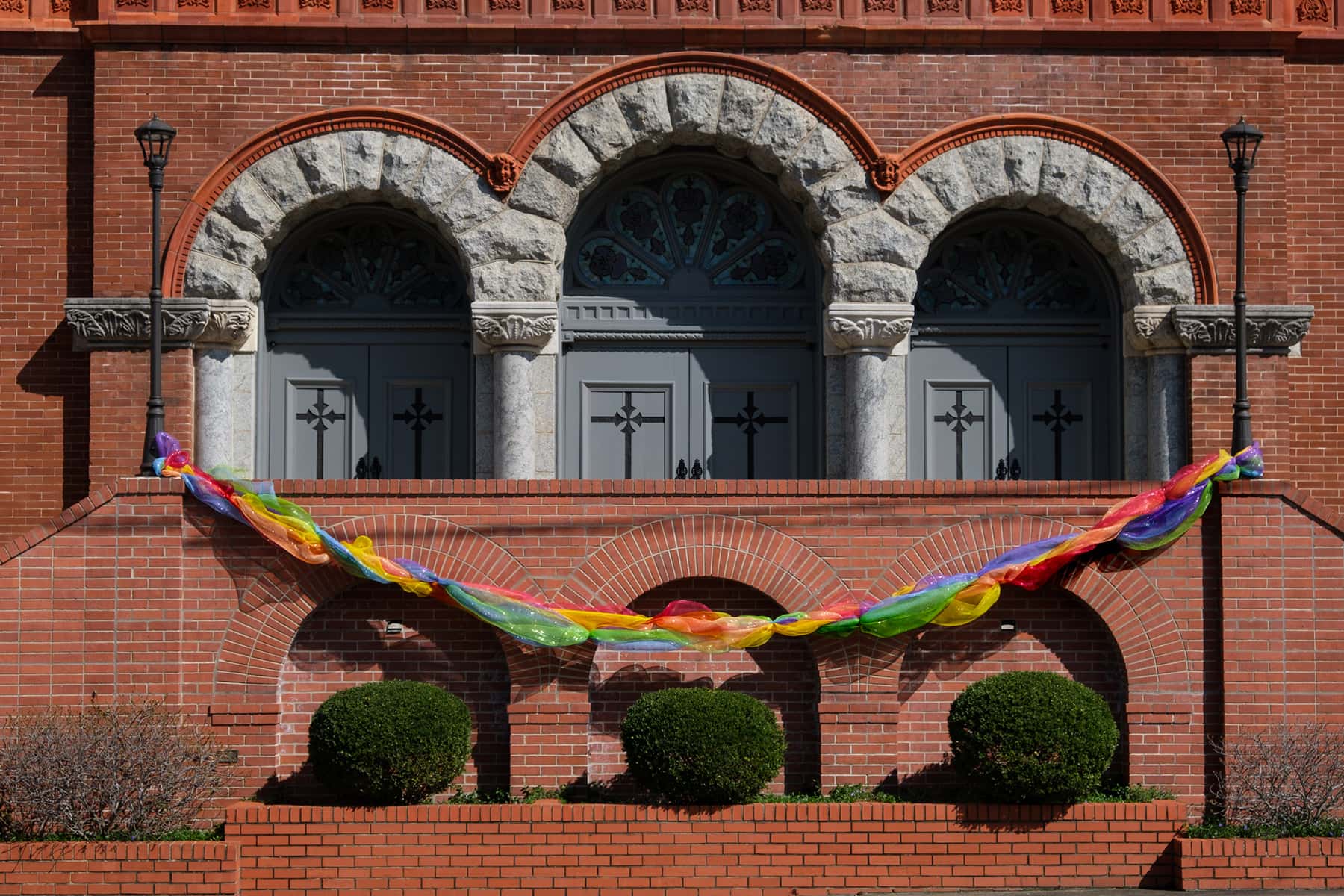
By Scott T. Vehstedt, PhD Candidate in American History, American University
The Methodist Church, the largest mainline Protestant denomination in the United States, is headed toward a divorce.
In early January, mediators from across the United Methodist Church proposed a separation plan to split the church into two separate denominations, with one that will allow same sex marriages and “practicing” LGBTQ clergy. Members of the General Conference, the church’s legislative body, are expected to pass the proposal in May. If a split occurs, it will be the result of nearly 50 years of failure to resolve the United Methodist Church’s ambiguous position on sexuality.
The origin of the debate
The United Methodist Church was formed in 1968 by the union of the Evangelical United Brethren Church and the Methodist Church. At that time in the United States, the civil rights movement and the nascent gay liberation movement were both underway. The new United Methodist Church, like many institutions in American society, grappled with the changing American culture, particularly with respect to sexuality.
For much of the 20th century, American society did not approve of homosexuality. As historian Robert O. Self noted in his book, “as late as 1968 homosexual acts remained a felony in every state except Illinois, New York, and New Jersey.”
Nevertheless, by the 1970s LGBTQ Americans made themselves visible both in public spaces and in the church, asserting their rights and dignity.
In 1972, the United Methodist Church adopted into its “Book of Discipline,” or established laws and doctrine, a clause which recognized homosexuals as “persons of sacred worth…entitled to have their human and civil rights ensured.” But there was a caveat: The church did not “condone the practice of homosexuality” and considers it “incompatible with Christian teaching.”
Embracing civil rights for LGBTQ Americans without condoning homosexuality in the church was an attempt at compromise. As my research on the church’s position on sexuality has shown, the newly unified denomination did not want to split up after just four years.
Sexuality – a divisive outlier
In 1972, liberals in the church introduced a statement in favor of civil rights for the LGBTQ community. Their aim was to officially support the civil rights of persecuted gay and lesbian people. Though seen by the more moderate and conservative members of the newly united church as radical, their statement was in keeping with many of other liberal Methodist policies.
The denomination – pre-unification with the United Brethren Church – was among the first to ordain women, recognizing women’s’ right to preach in 1956. Methodists have supported access to contraception and abortion since 1972. The church’s very first Book of Discipline opposed slavery, stating it to be “contrary to the golden law of God,” although this was never enforced in the American South.
Likewise, Methodists have been critical of aggressive foreign policy. The church referred to the war in Vietnam as a “crime against humanity” in 1972. Still, conservatives, who in 1972 represented a slim majority of the church’s membership, defended their position on sexuality. They agreed to the civil rights statement only on the condition that homosexuality be declared incompatible with Christianity.
Building an ambiguous legacy
The path to schism continued into the next decade. The 1980 United Methodist General Conference was a good one for gay rights, as sociologist Amanda Udis-Kessler has documented. The delegates voted down a measure to ban gay clergy and called on the government to ban discrimination based on sexual orientation in federal agencies and the military.
Then, in 1984 the church banned homosexual acts among clergy, essentially forcing LGBTQ ministers to either become celibate or quit. At their next meeting, in 1988, the United Methodists nevertheless adopted a policy of welcoming “all persons regardless of sexual orientation.”
By popular demand, that year the church also authorized the first concerted effort to study sexuality among Methodists. A committee chaired by Rev. Nancy Yamasaki, a pastor and church administrator, interviewed ministers and parishioners to document experiences and opinions about sexuality and its Biblical interpretation.
When their report was released in 1992 it argued that the Bible did not speak to sexual orientation at all. Among other conclusions, the report determined that sexual orientation is not a choice made by adults or a personal failing. It also concluded that gay couples practiced monogamy at roughly the same rate as straight couples and were every bit as happy.
In light of these results, a majority of the committee wanted the church to acknowledge that it could not “responsibly maintain the condemnation of all homosexual practice.” The church accepted that the 1992 report was the product of a valid and fair study but refused to adopt its recommendations.
Global ministry
Church policy on LGBTQ inclusion changed little in the 1990s and 2000s, though the church’s demographics did. Americans may have drifted toward full inclusion for LGBTQ people, yet since the 1960s fewer have attended mainline churches. For the United Methodist Church this trend really accelerated in the 1990s and 2000s.
Methodists are very diverse, with members from across the political spectrum and the world, particularly in Africa. Today, nearly half of nearly 13 million Methodists live outside the United States. In May 2020, when church leaders meet to approve their split, 56% of delegates to the General Conference will be from the United States, 32% from Africa, 6% from the Philippines and about 5% from Europe.
International delegates to the General Conference disproportionately oppose LGBTQ inclusion in the church and have demonstrated “overwhelming support” for maintaining the church’s traditional ban on same sex marriages.
“If the bans were eased, the church in Africa would cease to exist,” Rev. Jerry Kulah of Liberia told the media in 2019.
Rev. Forbes Matonga, a General Conference delegate and pastor at the Nyadire Mission Center in Zimbabwe, said last year that support for same sex marriage would cause Africans to leave the denomination. With opinions on sexuality now evenly split, the church can no longer keep everyone satisfied. In May, Methodists on both sides of the divide will have the opportunity to realize a church that reflects their own values.
Originally published on The Conversation as Gay rights dispute is pulling apart the United Methodist Church, after decades of argument
Support evidence-based journalism with a tax-deductible donation today, make a contribution to The Conversation.















